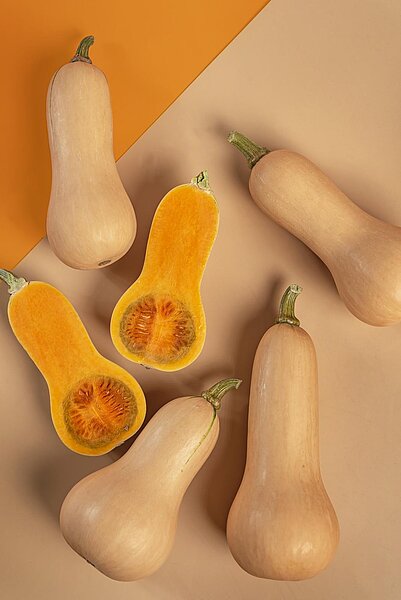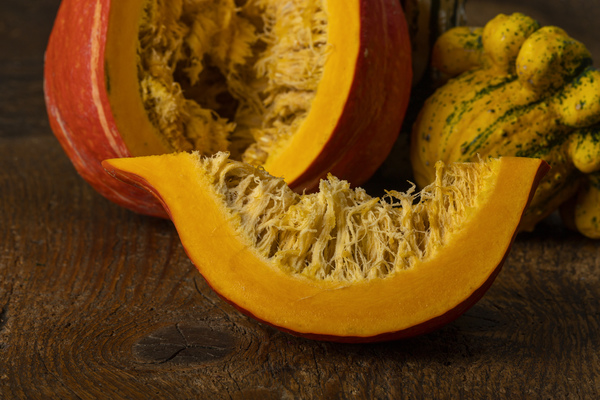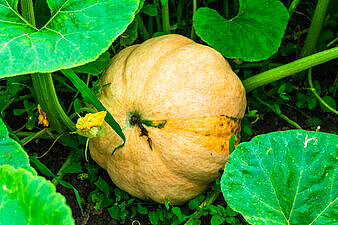Butternut squash

What is butternut squash?
Butternut squash is a type of winter squash from the pumpkin family. It is yellow-orange and pear-shaped. The flesh is soft and sweet and contains many seeds that need to be removed. Butternut squash can be eaten raw or cooked and is often used as a vegetable or in soups.
What are the benefits of butternut squash for dogs?
Butternut squash is not only delicious, but also healthy for dogs. It contains many vitamins (especially vitamin A), minerals (such as potassium, calcium and magnesium) and fiber. These nutrients can help boost your dog's immune system, regulate digestion and promote eye and skin health. Butternut squash can also help with diarrhea or constipation, as it can soften or firm stools.
How much butternut squash can my dog have?
As with any new food, you should introduce your dog to butternut squash slowly. Start with a small amount (about a teaspoon) and observe your dog's reaction. If he does not show any intolerance reactions (such as vomiting, bloating or itching), you can slowly increase the amount. The recommended daily dose is about one tablespoon per 4 kg of body weight.
How can I prepare butternut squash for my dog?
There are various ways to prepare butternut squash for your dog. The easiest way is to peel it, remove the seeds and cut it into small pieces. Then you can either feed it raw or cook it in water until soft. You can feed the butternut squash on its own or mix it into the food.
What are the disadvantages of butternut squash for dogs?
Butternut squash is generally well tolerated by dogs, but there are some things to be aware of:
- Not all dogs like the flavor or texture of butternut squash.
- Too much butternut squash can lead to obesity as it is relatively high in calories.
- Too much vitamin A can lead to symptoms of poisoning (e.g. loss of appetite, lethargy or hair loss).
- The seeds of butternut squash can cause choking or intestinal blockage.
- Some dogs can have an allergic reaction to butternut squash.
Butternut squash is a healthy ingredient for your dog that can bring him many benefits. However, you should always make sure that you only give him an appropriate amount and observe his reaction.
If you notice any signs of hypersensitivity or poisoning in your dog, you should see your vet immediately. We are not a substitute for a vet, but we try to be as accurate as possible. Every dog reacts differently and we recommend you get a second opinion or consult your vet if in doubt.
Stay healthy and take good care of your four-legged friend!😊
Similar to Butternut squash
Hokkaido is a small, round pumpkin with an orange or green skin. It originates from Japan, where it was named after the northernmost island. Hokkaido has a firm, sweet flesh that is ideal for soups,...
Spaghetti squash is an edible squash and originally comes from America. It has an oval shape and a yellow skin. Its weight can vary between one and five kilograms. Its special feature is its flesh,...
The garden pumpkin is a plant species from the pumpkin family. It is one of the oldest cultivated plants in the world and is grown in many regions. The garden pumpkin has a round to oval shape and a...
Muscat squash, also known as butternut squash, is a type of winter squash characterized by its pear-shaped form and smooth, light beige skin. The inside is orange, fleshy and sweet in taste. Muscat...



